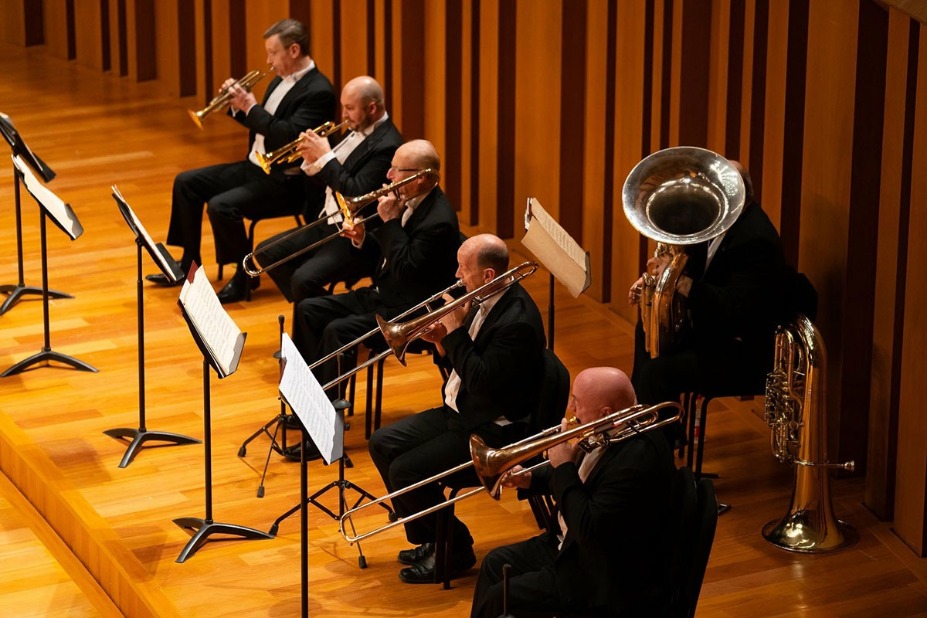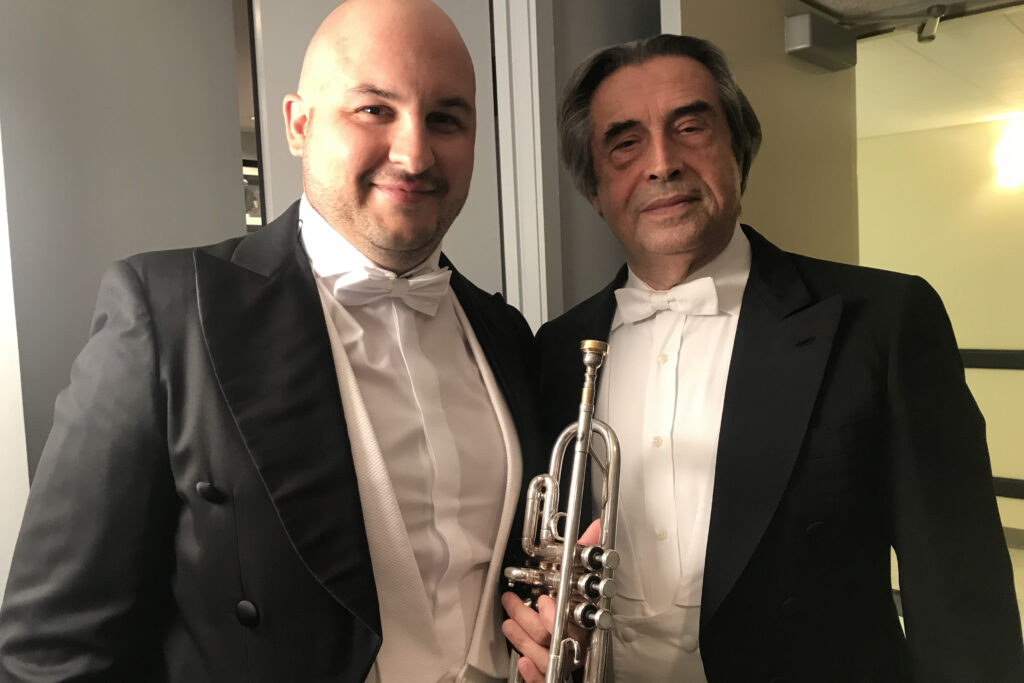Trumpetland 2019-04-11
We tell you the story of this young Spanish trumpeter who has achieved his highest professional aspiration (and that of many trumpeters): taking the chair of Adolph Herseth in the Chicago Symphony. Don’t miss this inspiring report.
Esteban Batallán is one of those musicians who, you just know when you listen to them, you realize they have something special. He is not simply a great trumpeter, he is one of those trumpet players that, besides possessing devilish technique, natural musicality and an impeccable sound, boasts a musical maturity unbefitting his age, undoubtedly fruit from the enormous professional experience that he has already accumulated.

His idol of youth: Adolph ‘Bud’ Herseth. His dream: to eventually occupy the principal chair that Herseth occupied in the famous Chicago Symphony Orchestra.
Today, Esteban can say that he has achieved his dream, because after attending the last audition of the orchestra had in 2017 and passing all the round, he was offered a guest contract for the 2018-2019 season as principal trumpet.
So, we wanted to do this interview, with the intention of inspiring other young trumpeters to pursue their dreams.
The story of Esteban Batallán begins very similarly to that of any other musician. He was born in 1983, in a small municipality of 3,700 inhabitants, called Barro, in Pontevedra (Spain); and it was his father — a great music lover, but due to life’s fortune, did not get to study music — who pointed Esteban to the school and band of his town. There, he would take his first steps, until he became a member of the Municipal Band of Pontevedra at the age of 11. In this band, the musicians, despite not being professionals, received a small monthly stipend and, therefore, had a work routine with scheduled concerts, etc. “While there, I passed the auditions for the Young National Orchestra of Spain (JONDE). I won the Musical Youth Prize of both Spain and Europe, and the Yamaha Award, both Nationally and Internationally. I acted as principal with the Spanish Radio and Television Symphony and I collaborated with other orchestras, such as the English Chamber, etc.” In question of his teachers, Esteban mentions with special affection, Javier Viceiro (professor of the Advanced Conservatory of Vigo), “He was my teacher and my mentor throughout my career. Without his guidance, I would not have become who I am. And for this reason, I feel that my achievements are also his,” says Esteban.

“As a trumpet player, Esteban Batallán is something out of the ordinary, but as a person he is wholehearted. He is a simple person: a lover of his home land, his culture and everything that has paved his way of being and his way of understanding music. Those of us who know him have been able to find a friend willing to do everything he can for others”.
Roberto Bodí (principal trumpet of the Castile and Leon Symphony Orchestra, Spain)
The first time Esteban heard about the Chicago Symphony was in 2000, after recently joining the JONDE. “The first program we were going to play was Mahler’s Symphony No. 1, so I went to find a recording at a record store. The only one there was was one from a certain ‘Chicago Symphony Orchestra’ conducted by one ‘Klaus Tennstedt’, so I bought it,” he says, naturally. “When I heard that colossal recording, I was astonished. I had to tell all my friends. Some of them already knew of the Chicago Symphony and had other albums of their own, so we began to share recordings with each other and to comment on the performances. That was when I really became aware of wanting to follow the orchestral path, and that I wanted to get to sit down, one day, in Adolph Herseth’s chair.”
Those recordings had a profound impact on Esteban, so much so, that he himself claims to have ‘learned to listen’ — something very important in his position — listening to the recordings of the Chicago Symphony. “While playing the trumpet role, I learned to ‘decipher’ what I put on the scores by listening to those Chicago recordings. Above all, I learned to understand the style and character of each composer, according to the sound of the brass section in each individual work and the way they played it,” he says.

In all the time Esteban enjoyed learning alongside the discography of the Chicago Symphony, he also developed his own professional career. On October 21, 2002 (at age 18) he won the assistant principal position with the City of Granada Orchestra, a position he spent less than a year in, as the principal position became vacant and was then auditioned internally. After a few of years as the interim principal, and after two public auditions, he was officially offered the principal position. “I lived in the City of Granada Orchestra for sixteen years. There, I learned to differentiate even more, if possible, the style and the manners in which I wanted to make music”, says Batallán, who also achieved other important successes during that time: 4th prize in the International Trumpet Competition Maurice André of the Ville de Paris in 2006, guest principal of the Royal Concertgebouw Orchestra of Amsterdam in 2010 and the Royal Symphony Orchestra of Seville between 2010 and 2014, collaborations with the Royal Philharmonic and the Basel Symphony, contracts with the orchestra of the Teatro de La Scala in Milan in 2015 and early 2018…
But Batallán’s career took a quantitative leap in 2017, when, following the departure of Chris Martin to the New York Philharmonic, principal trumpet auditions were held with the Chicago Symphony. “I said to myself: ‘Esteban, you can not miss this opportunity.’ And I began to prepare myself as mentally as never, with maximum motivation,” he explains, confessing that, although he was called to audition in the first round on June 15th, with the final on the 19th, he went ahead and booked a flight two days before the first round began, “with the idea of adapting to the schedule and being rested.” He even risked purchasing his return trip the day after the finals — now we get a picture of the level of confidence this young man had. A well-founded confidence too, because out of the 28 people who auditioned in the first round, he was the only person who made the finals. “After I played the first round and they told me I was going to the finals, I couldn’t believe it. When I arrived at the hotel, I celebrated with my wife and immediately started preparing for the final round,” he says. “On the day of the finals, the orchestra told me that there would be three other candidates invited by Maestro Riccardo Muti, who were also auditioning in the finals — two on the same day as myself, and the other candidate during the following week. I was number 2. During this audition, there was no curtain and I could see many people sitting and listening. I clearly remember Muti sitting in the fourth row, with a fixed gaze, behind the rest of the members of the jury and other musicians of the orchestra that were present to listen to all the candidates. At the end of the morning, and after 45 minutes of waiting, they told us: ‘In the absence of listening to a last candidate, the jury has decided that only candidate No. 2 has obtained the necessary votes’. And logically, I was flooded with joy. The other two candidates congratulated me, and then musicians from the orchestra and members of the jury arrived — those people of who I had been watching via videos and listening to recordings for so many years, and whose names I already knew — to congratulate me. I will never forget that moment,” he comments, with sparkle in his eyes.

The candidate who auditioned for the following week, also obtained the necessary votes from the jury, so the orchestra decided that they should give both the candidates a trial. So, on June 28th, Esteban received his first formal invitation from the Chicago Symphony and Riccardo Muti for a contract of several weeks.
However, the story isn’t an entirely happy one… After several days of going through all the necessary bureaucratic procedures, Batallán’s visa to work in the United States was denied, so he could not begin his contract with the CSO. “At that moment, I had a really bad time with it,” he admits.
The orchestra did use the other finalist, but after a while, they again contacted Esteban to offer him another contract, this time for three weeks (in June 2018). “Fortunately, my visa was approved this time around,” he says with satisfaction. Finally, our friend was able to sit in Adolph Herseth’s long-awaited chair. “This three-week contract was really amazing. I was super excited, full of happiness. In the end, Maestro Muti offered me additional weeks with the orchestra, which included concerts at the Symphony Ball during the 2018-2019 season, a tour through Asia, another tour in Florida… Between one thing and another, I’ve been acting as the principal trumpet of the Chicago Symphony until March 2019.”

Between June of 2018 and March of 2019, Esteban has had time to learn more about his beloved Chicago orchestra and its director. “My dealings with Maestro Muti and the Chicago Symphony are simply wonderful. I have a very good relationship with all the members of the brass section, but also with the woodwinds, percussion and strings. I can say it’s a very friendly orchestra, now that I have been able to live with them more,” he says. And regarding the director, he adds: “Specifically with Muti, I have a very cordial relationship. It’s great to be able to work with him. He’s a great director; his way of transmitting Italian music, especially Verdi, is fascinating.”
The degree of professional growth of this person is clearly manifested in that, in parallel with this adventure with his admired Chicago Symphony, at the beginning of 2018 — hired at La Scala in Milan — he was invited to play a couple of weeks and take an audition for the Hong Kong Philharmonic, after which Maestro Jaap van Zweden offered him the principal position. “I made it clear that my goal was the Chicago Symphony, but I did not know what state my contract was in, so Hong Kong decided to offer me the position with flexible dates and I could also face my commitments in Chicago,” he says simply.
We often ask ourselves what trumpets a player of such calibre uses in his day-to-day life: “I play on a Weimann Passion in C, gold plated. As an instrument, it’s of very high quality: from the materials used in manufacturing, construction, and finish,” he explains, describing later some tricks: “I use two different general tuning slides, which I alternate according to the repertoire. For example, the slide with the keys of C and A, I use for Beethoven, because of its deeper and darker color; the slide without keys, I use for Bruckner, Brahms, Wagner… (more powerful repertoire, with a wider sound and greater projection). I also have five or six different leadpipes, with different measurements that offer me different sound qualities, regardless of how the trumpet is configured, so I can play with many different colors and adapt to the needs of the repertoire and the sound conditions of the orchestra, as well as the room I’m playing in.” We have explored the website of this German manufacturer, and their products seem quite interesting, with trumpets and flugelhorns completely handmade.
So, Esteban Batallán is currently the principal trumpet of the Hong Kong Philharmonic after having been with the City of Granada Orchestra for sixteen years. “I left my position in Granada because I felt the orchestra did not have any desire to grow. I was able to live splendid moments in the orchestra there, especially during Josep Pons’ reign as the director, but afterwards the orchestra suffered both an artistic and economic downturn that has stagnated. Without the involvement of its members and institutions, I don’t really see a future for it. Still, I have great friends there. But the artistic situation was unsustainable, and the step I took when leaving for an orchestra like the Hong Kong Philharmonic has without a doubt been for the good,” he says. “Today, I feel great in Hong Kong, although everyone who knows me knows that the Chicago Symphony is the Chicago Symphony.”
Recently, the American orchestra has called for new auditions for the principal trumpet position. “I’m invited directly to the final round, on June 10th, and of course I intend to introduce myself. I will face the round in the same way I faced the previous one, but this time with more illusion, because I now have a wonderful sensation with the orchestra,” Batallán says. And he ends mentioning: “I always dreamed of playing in the Chicago Symphony, and now that I’ve had the opportunity, I do not want to stop doing it. It’s just too wonderful.”
Good luck on June 10th, Esteban. And, whatever happens, congratulations for everything you have achieved and what you have yet to achieve.
Update (06/25/2019)
Esteban Batallán has been named Principal Trumpet of the Chicago Symphony Orchestra after winning the audition, which finally took place June 24th. Congratulations, Esteban!
